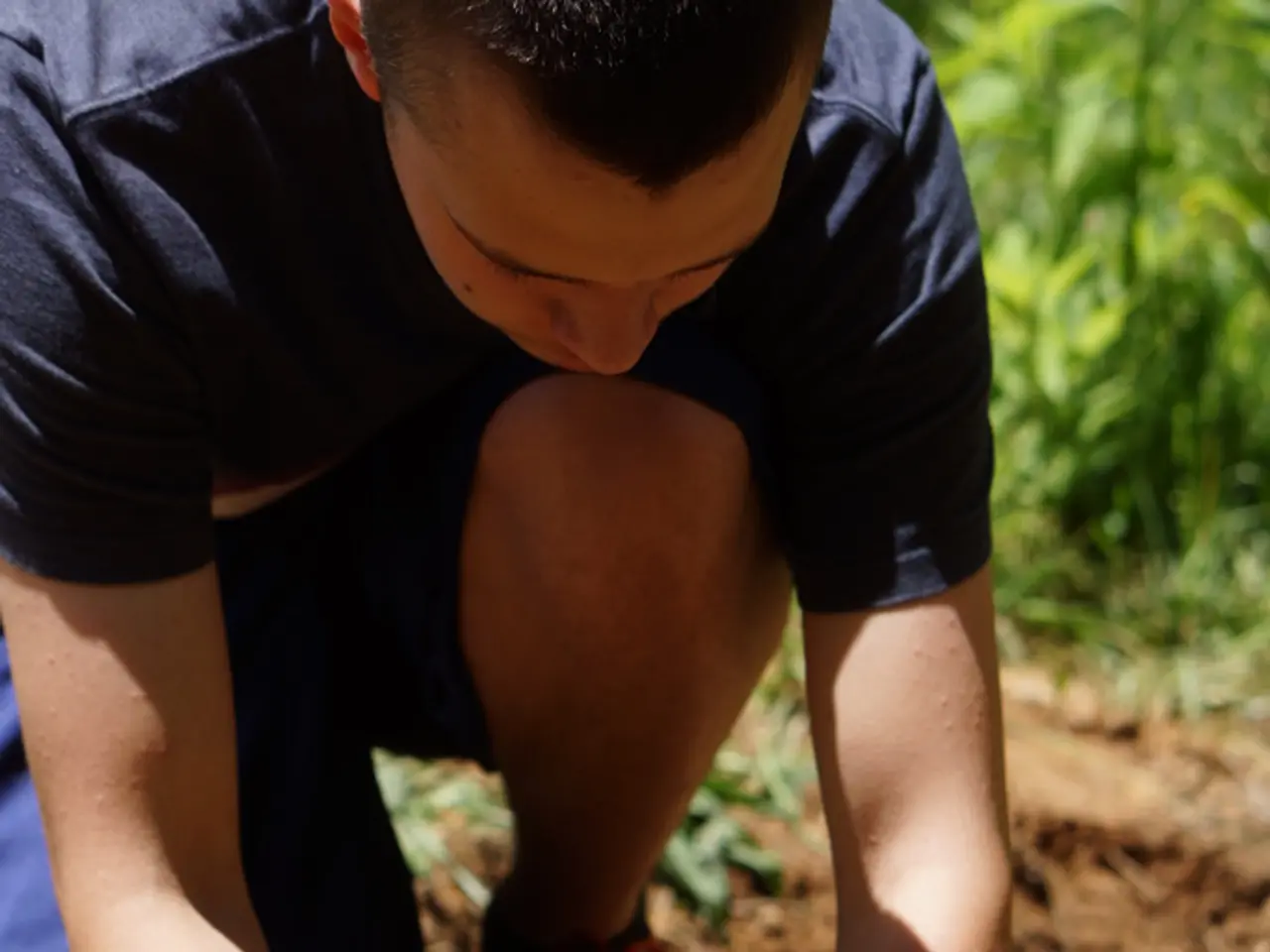Practical Farming Tools for Long-Term Agriculture
In the world of organic farming, choosing the right tools is crucial for both the environment and the farmer. Here's a list of eco-friendly essential hand tools that can help you cultivate a sustainable farm:
- Hand trowels and hoes made from durable, recycled, or sustainably sourced materials like FSC-certified wood handles and recycled steel blades.
- Pruning shears and scissors with high-quality steel to minimize waste from replacements.
- Manual seeders that avoid fuel use and reduce soil disturbance.
- Hand forks and cultivators for weed control without chemicals.
- Watering cans constructed from recycled or biodegradable materials to reduce plastic waste.
To ensure these tools last and perform optimally, follow these practices:
- Clean tools regularly to remove dirt and sap, preventing rust and degradation.
- Sharpen blades frequently to maintain cutting efficiency, which reduces force required and wear.
- Oil metal parts with natural oils like linseed oil to prevent rust and lubricate joints.
- Store tools properly in dry conditions, hung or kept off soil to avoid moisture damage.
- Repair handles or replace worn parts instead of discarding, extending tool life.
- Use eco-friendly cleaning agents to avoid chemical pollution.
These steps will not only extend the lifespan of your tools but also ensure a minimal environmental impact and cost savings over time by reducing resource use and waste.
While modern sustainable farming increasingly utilizes AI-driven and robotic technology for precision and efficiency, fundamental hand tools maintained through traditional eco-conscious care remain invaluable for small-scale and organic operations.
In organic farming, it's essential to engage with local farmers who share similar values, as they can provide valuable tips on tool care. When choosing sustainable farming equipment, look for solid construction, good reviews, and brands known for sustainability. Ensure the tool is designed for specific tasks, as this will help you work more efficiently.
By caring for your tools and practicing sustainability in organic farming, you're not only caring for your tools but also the environment. Tools like shovels, rakes, hoes, pruning shears, and garden forks become your partners in cultivating a thriving, eco-friendly farm.
References: [1] AI in Agriculture: A Comprehensive Review [2] Sustainable Agriculture: A Guide for Farmers [3] Eco-Friendly Gardening Tools: A Sustainable Approach [4] The Impact of Sustainable Farming Practices on Soil Health
- The quality of organic farming relies not only on the choice of eco-friendly tools but also on their regular maintenance for optimal performance and longevity.
- Evidently, hand trowels, hoes, pruning shears, and other essential tools, when cared for properly, can become valuable partners in cultivating a sustainable farm.
- In the realm of health-and-wellness and lifestyle, sustainable farming is not just about the food-and-drink produced but also the practices used in its growth, such as gardening tools made from sustainable materials.
- A well-maintained collection of sustainably sourced gardening tools contributes significantly to our commitment towards environmental-science, given the reduced environmental impact from lesser waste and resource use.
- Purchasing organic farming equipment that promotes sustainable living is a step towards minimizing our carbon footprint and slowing down climate-change while also ensuring locally-sourced products contribute to the food-and-drink industry.
- Embracing eco-friendly tools and applying sustainable farming practices enriches not only our food-and-drink preferences but also our gardening hobbies and home-and-garden aesthetics.
- Data-and-cloud-computing can play a part in calculating the carbon emissions saved by choosing sustainable gardening tools, providing further motivation for enthusiasts of tech-driven environmental initiatives.
- As advocates of sustainability, it is vital to incentivize the fashion-and-beauty industry to follow suit by producing clothing and accessories made from recycled materials to minimize waste and maintain ethical standards throughout our lifestyle choices, including home-and-garden and food-and-drink arrangements.




